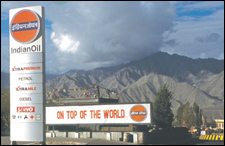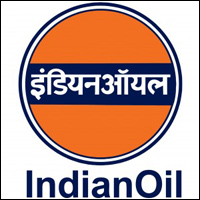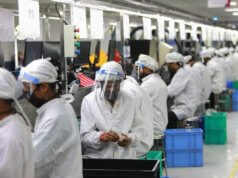 Till a few years ago oil marketing companies (IOCL, BPCL and HPCL) were considered to be jewel in the crown of the government. Flush with funds, these companies were cash cows for the government milking them to fill up fiscal deficit gap whenever it wanted. However, situation has taken a dramatic turn in recent years with these companies visiting debt market frequently to raise funds to meet their working capital requirements –all these happening due to government’s inaction on policy reform front and rising oil prices.
Till a few years ago oil marketing companies (IOCL, BPCL and HPCL) were considered to be jewel in the crown of the government. Flush with funds, these companies were cash cows for the government milking them to fill up fiscal deficit gap whenever it wanted. However, situation has taken a dramatic turn in recent years with these companies visiting debt market frequently to raise funds to meet their working capital requirements –all these happening due to government’s inaction on policy reform front and rising oil prices.
During 2012-13, gross under-recoveries of the PSU oil marketing companies (OMCs) were to the tune of Rs.1,61,029 crore as against Rs.1,38,541 crore in the previous year. While Indian Crude Basket (ICB) price fell during the year on an average by 3.5%, the weakening of the Rupee by 6.7% meant that the decline in crude costs was eroded. As a late reaction the government took some steps in the form of policy action on capping domestic LPG and hike in diesel prices. But this has failed to make any significant change in fortunes of the OMCs.
|
|||||||||||||||||||||
In January 2013, the Government allowed the OMCs to increase the retail selling price of Diesel in the range of 40 paisa to 50 paisa per litre per month (excluding VAT as applicable in different State/Union Territories) and to sell Diesel to all consumers taking bulk supplies directly from the installations of the OMCs at non-subsidized market determined price. Though these steps helped the OMCs to contain their losses to an extent, much damage had already been done. After accounting for compensation granted under the burden sharing mechanism of the Government, net under-recoveries stood at Rs.1029 crore for the OMCs during the year.
Apart from under-recoveries, OMCs’ financials were adversely impacted due to delay in compensation by the Government of the under-recoveries incurred, which forces OMCs to resort to borrowings for maintaining their cash flow. Growing borrowing levels along with the high interest rates in the country escalated the debt servicing burden of the OMCs and made a major dent on their financial health.
As a result, OMCs’ borrowings have ballooned to Rs.1,38,522 crore as at the end of 2012-13 which is more than ten times the cumulative debt of OMCs during 2004-05. Their cumulative interest costs have touched Rs.10,253 crore in 2012-13. What is more, the interest cost incurred on borrowings is not compensated by the government putting further pressure on the OMCs.
|
|||||||||||||||||
Due to their heavy borrowings, which has damaged the Balance Sheet of OMCs as the debt-equity ratio has gone up, their capex programme may go haywire. OMCs had plans to invest Rs.110,110 crore during the 12th Five Year Plan. Individually, IOCL has a capex requirement of Rs.56,200 crore followed by BPCL at Rs.32,789 crore and HPCL has planned a capex outlay of Rs.21,121 crore. In order to fund these capex plans they have to generate internally Rs.20,000 crore every year or resort to heavy borrowings which seems to be highly unlikely as they are already overleveraged. Thus, OMCs capex plans may have to be revised downwards sooner or later.
Despite OMCs making several representations, the government has turned a blind eye to their problems. Even after announcing some measures to contain their losses in January this year, financial condition of these companies has not changed substantially. As per the Refinery Gate Price (RGP) effective 1.8.2013, the OMCs are incurring under-recovery of Rs.9.29/litre on sale of diesel (to retail consumers), Rs.33.54/ litre on PDS kerosene and Rs.412.00 per 14.2 kg cylinder on subsidized domestic LPG. Thus, OMCs agony seems to be unending, at least in the near term.











